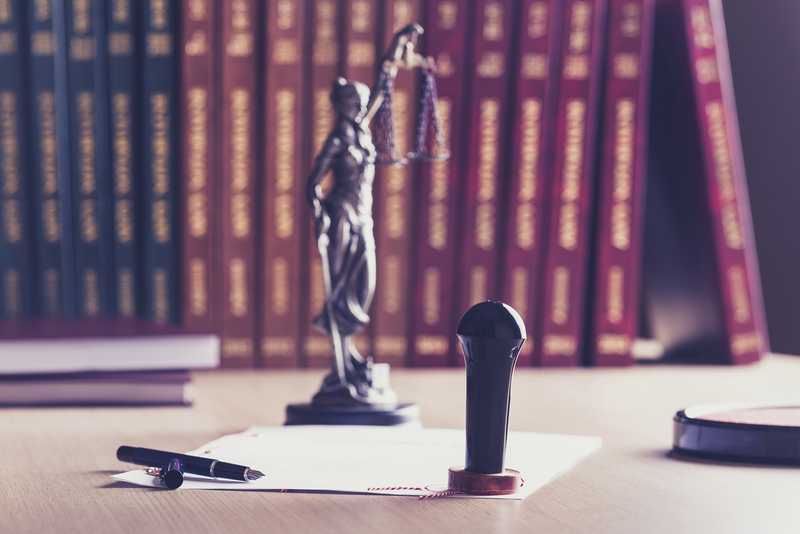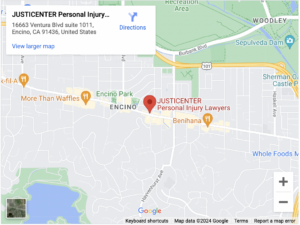JUSTICENTER Personal Injury Lawyers | November 13, 2025 | California Law

Note: This article is intended for informational purposes only. Our firm does not take defamation cases; however, we publish general legal content to help educate the public. For legal assistance with personal injury matters, please get in touch with our team.
Defamation refers to a false statement made about someone that injures their reputation. It is a type of tort that allows the injured party to seek compensation for damage caused to their reputation, emotional well-being, or livelihood.
Defamation has become an increasingly complex issue due to the rise of social media, online reviews, and the rapid dissemination of information.
The sections below discuss the elements of defamation and the remedies available to individuals who experience harm.
Defining Defamation Generally
Defamation occurs when someone (1) makes a false statement of fact about another person or entity, (3) publishes that statement to a third party, and (3) causes harm to the victim’s reputation.
There are two main types of defamation. Libel refers to written or published defamatory statements, including those on websites, social media, or in print. Slander refers to spoken defamatory statements, such as in conversations or speeches.
To succeed in a defamation lawsuit, a plaintiff generally must prove:
- A party made a false statement of fact. The statement must be provably false. Pure opinion, satire, or hyperbole is not typically defamatory.
- The party “published” the statement. The statement must be communicated to at least one other person besides the subject of the statement.
- The speaker must have acted negligently, or with actual malice (knowledge of falsity or reckless disregard for the truth).
- The false statement must cause damage to the plaintiff’s reputation or livelihood.
Some statements are considered defamation per se, meaning they are presumed to be inherently harmful. Examples include accusing someone of a crime, being unfit for a profession, or having a loathsome disease.
California Defamation Law
California law aligns with the general definition of defamation outlined above, but also includes several specific features.
California defamation law includes libel and slander. Libel is defined as a false and unprivileged publication that injures a person’s reputation and exposes them to hatred, contempt, or ridicule. Slander is a false and unprivileged oral communication that harms a party’s reputation.
In California, a defamation lawsuit must be filed within one year of the defamatory statement being made or published.
If the plaintiff is a public figure or public official, California follows the U.S. Supreme Court’s standard established in New York Times v. Sullivan. In such cases, the plaintiff must prove the statement was made with actual malice, meaning the defendant knew it was false or acted with reckless disregard for the truth.
California courts often recognize broad First Amendment protections for online speech. However, false factual statements posted online can still give rise to a valid defamation claim if harm is shown.
Defenses to Defamation Claims
There are several common defenses to a defamation claim, including:
- Truth: A true statement, no matter how damaging, is an absolute defense.
- Opinion: Pure opinions that do not imply false facts are generally protected. For example, saying “I think John is dishonest” is not the same as falsely stating “John embezzled money from our company.”
- Privilege: Certain statements made in legal or governmental proceedings are immune from defamation claims.
- Consent: If the plaintiff consented to the publication of the statement, they cannot later claim defamation.
The available defenses depend on the facts and circumstances of the allegedly defamatory statement and its impact on the plaintiff.
Types of Remedies for Defamation
When a plaintiff succeeds in a defamation lawsuit in California, the court may award several types of remedies.
Compensatory damages are the most common and are intended to cover the actual harm caused by the defamatory statement, including reputational damage, emotional distress, and any financial losses suffered.
In cases where the defendant acted with malice, fraud, or oppression, the court may also award punitive damages to punish the wrongdoer and deter similar conduct in the future. In limited circumstances, courts may grant injunctive relief, which could involve ordering the removal of the defamatory content or issuing a formal retraction. However, such orders are rare.
Contact an Experienced Encino Defamation Lawyer for Help
If you believe you have been defamed, it’s essential to consult with a qualified Encino personal injury attorney for help understanding your rights and legal options. JUSTICENTER Personal Injury Lawyers offers free consultations to help you identify whether you have a valid claim. Contact us today to schedule yours.
Please contact an experienced personal injury lawyer at JUSTICENTER Personal Injury Lawyers for a free initial consultation today at (833) 852-3600.
Our main office is in Encino, CA, but we serve all through Los Angeles County.
JUSTICENTER Personal Injury Lawyers
16633 Ventura Blvd suite 1011,
Encino, CA 91436

